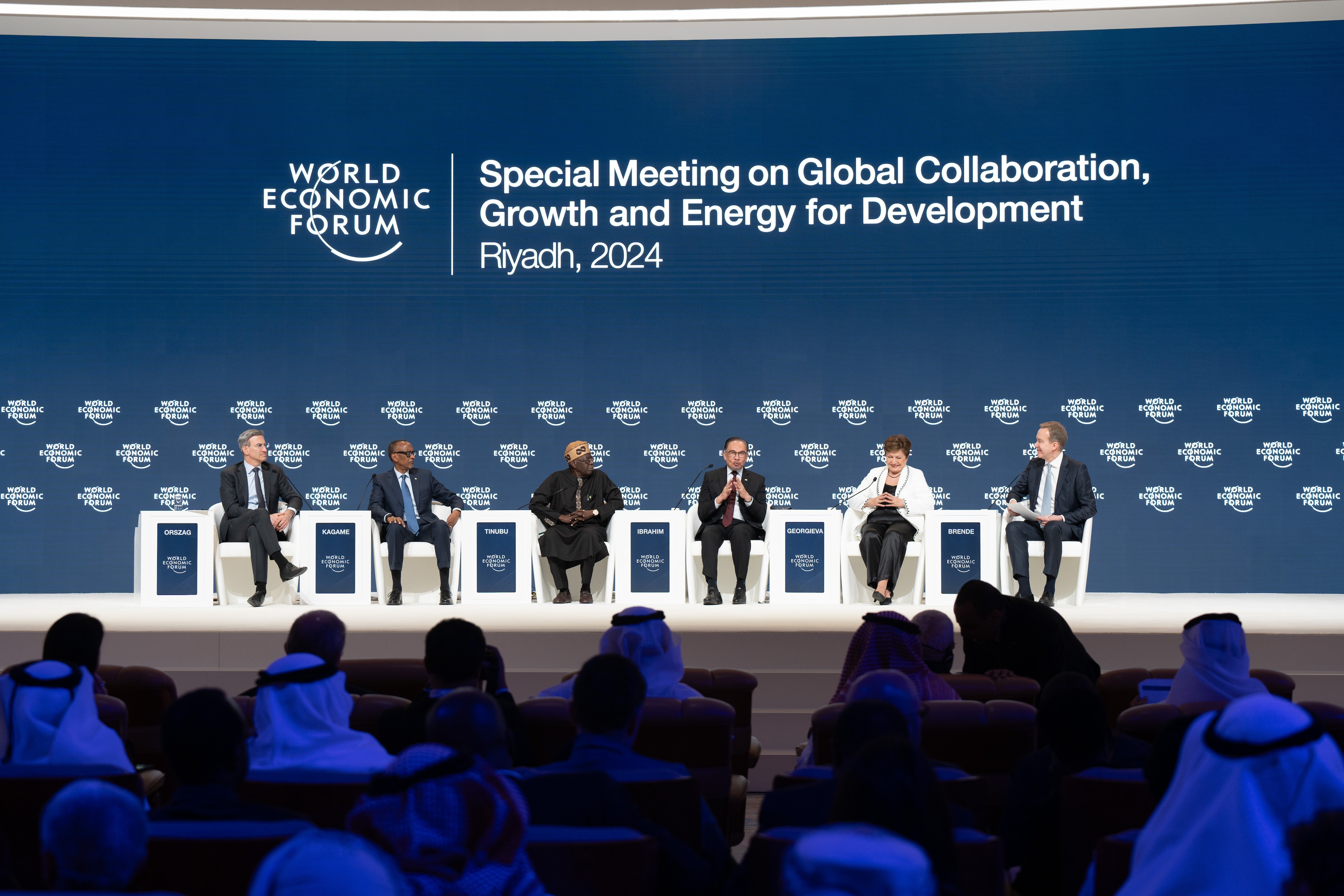How the space renaissance could save our planet

What we do in space has an increasing bearing on what happens down here Image: Unsplash/Greg Rakozy

Get involved with our crowdsourced digital platform to deliver impact at scale
Stay up to date:
Space
Listen to the article
- Several major technological shifts are driving a renaissance in space, including falling prices and increasing amounts of data.
- This can supercharge sustainability and digitalization – the two big economic transitions of our age.
- Here are 3 main areas where this renaissance is having an increasing impact.
Space is in the headlines on a weekly basis. New rockets, billionaires and space tourists: there's no end to the excitement!
But behind the scenes so much more is happening. We’re undergoing a space renaissance: a period where seismic technology innovations are powering new capabilities. But the most important aspect, in my opinion, isn’t the rockets or the satellites (as much as I love those as a space geek), it is the tremendous new data we’re collecting in orbit.
There are a few major technological shifts that are driving this renaissance: rockets have dropped in price by a factor of four over the past decade; satellites' cost-performance has grown 1,000 times better over the same period; and artificial intelligence (AI) is enabling the efficient extraction of critical information from these datasets.
These three trends compound, and are unleashing new uses, users and capabilities from our space assets.
And the benefit? More data about what’s happening on earth.
The space renaissance is a data revolution
Today we’re producing 10 times the amount of Earth imagery by area versus five years ago; and 10 times the bandwidth of communications is being transmitted around the planet. This flood of data is having a major impact in three main areas:
1. The economy. There are two global economic shifts of our age, both trillions of dollars in scale. The first is the digital transformation of industries, where big data and AI enable entire sectors to operate much more efficiently. Satellite data can accelerate this transition. Take agriculture, for example. Farmers can use satellite imagery to monitor their fields to spot problems early on and optimize inputs. Prioritizing specific fields based on this information saves costs while increasing efficiency and revenue. This is having a tremendous impact on our food system.
2. Sustainability. There is a multi-trillion dollar trend in the transition to a sustainable economy. In this case, businesses are shifting to track their environmental, social and governance (ESG) targets and governments likewise with their emissions. This all starts with measurement. Data from satellites is foundational to the sustainability transition, as we can use it to measure change in natural capital and factor it into our policy-making. For example, in a partnership with Norway’s Ministry of Climate and Environment (NICFI), forestry ministries in 64 tropical countries are using Earth observation data to curb deforestation, leading to a tenfold increase in annual citations and prosecutions on illegal land clearings in some regions. The lesson is simple: data drives accountability, which drives action.
3. Peace and security. What have satellites got to do with politics, peace and security? A lot, as it turns out. Daily imaging is bringing about a more transparent planet, and it’s a technology that both sheds light on world events and brings accountability. Never has this been more clear than in the war in Ukraine. Commercial satellite data is providing an overhead view of the conflict and changing the calculus. By enabling the world to see and understand change in unprecedented detail, in both time and space, satellite data is enabling a new level of global transparency, allowing citizens to monitor change as it occurs across the world and shed light on global happenings. This accountability is a huge positive force.

As fun as it is to see the billionaires and new rockets in space, the far more important opportunity of the space renaissance is a data revolution that is powering sustainability and digital transformations, the two largest economic transitions of our age. It’s bringing us renewed transparency and having a profound impact on security and geopolitics, lifting the veil on activities that do not benefit humanity.
This is the real story of the space renaissance, and it’s truly game changing – not up there, but here on Earth.
Don't miss any update on this topic
Create a free account and access your personalized content collection with our latest publications and analyses.
License and Republishing
World Economic Forum articles may be republished in accordance with the Creative Commons Attribution-NonCommercial-NoDerivatives 4.0 International Public License, and in accordance with our Terms of Use.
The views expressed in this article are those of the author alone and not the World Economic Forum.
The Agenda Weekly
A weekly update of the most important issues driving the global agenda
You can unsubscribe at any time using the link in our emails. For more details, review our privacy policy.
More on Forum InstitutionalSee all
Gayle Markovitz
April 28, 2024
Gayle Markovitz
April 27, 2024
Mirek Dušek and Maroun Kairouz
April 27, 2024
Kate Whiting
April 26, 2024
Spencer Feingold and Gayle Markovitz
April 19, 2024
Kate Whiting
April 17, 2024






